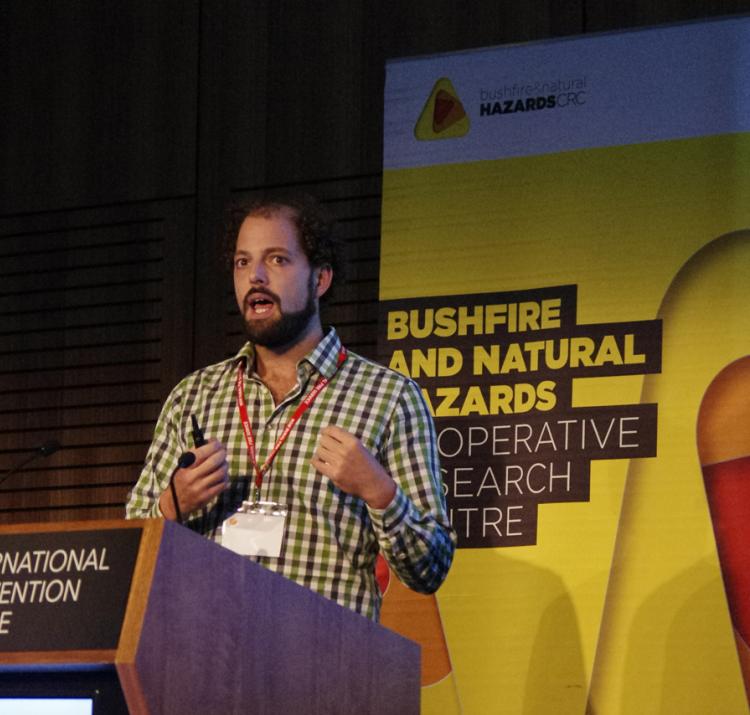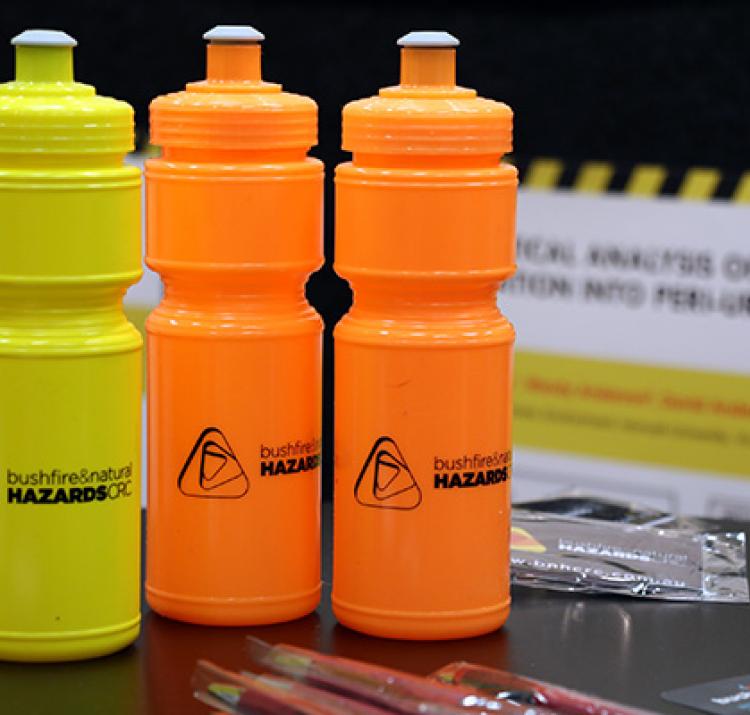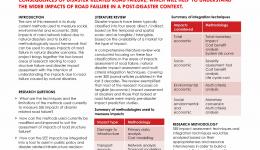Student researcher
With the occurrence of natural disasters rising in frequency and intensity, the importance of conducting research on the effect of disasters on major infrastructure becomes evident. Road infrastructure such as bridges, culverts and flood-ways play an important role after a disaster since providing access to affected areas is a vital factor influencing the recovery and reconstruction activities. Prior research in this area has mainly focussed on the structural impacts to infrastructure or the wider economic impacts due to disasters, while there is relatively less literature on the social and environmental impacts due to road failure. Assessment of social, environmental and economic consequences will be the first step towards understanding the wider impacts of road failure and this research aims to develop a framework to measure these impacts, providing the necessary data to researchers and public sector decision makers. The framework would be developed based on data obtained from a disaster affected community and through a comprehensive stakeholder engagement process. This would be the first time that a project will aim at measuring the overall impacts of post-disaster road failure and will have major practical and policy implications in post disaster recovery situations.
| Year | Type | Citation |
|---|---|---|
| 2020 | Thesis | Measuring the social, environmental and economic consequences of bridge failure due to natural disasters. School of Engineering Doctor of Philosophy, 250 (2020). |
| 2019 | Conference Paper | Post-Disaster Decision Making in Road Infrastructure Recovery Projects - An Interview Study with Practitioners in Queensland. Australian & New Zealand Disaster & Emergency Management Conference (2019). at <https://www.researchgate.net/publication/333842851_Post-Disaster_Decision_Making_in_Road_Infrastructure_Recovery_Projects_-_An_Interview_Study_with_Practitioners_in_Queensland> |
| 2018 | Journal Article | Community adaptation to cope with disaster related road structure failure. Procedia Engineering 212, (2018). |





